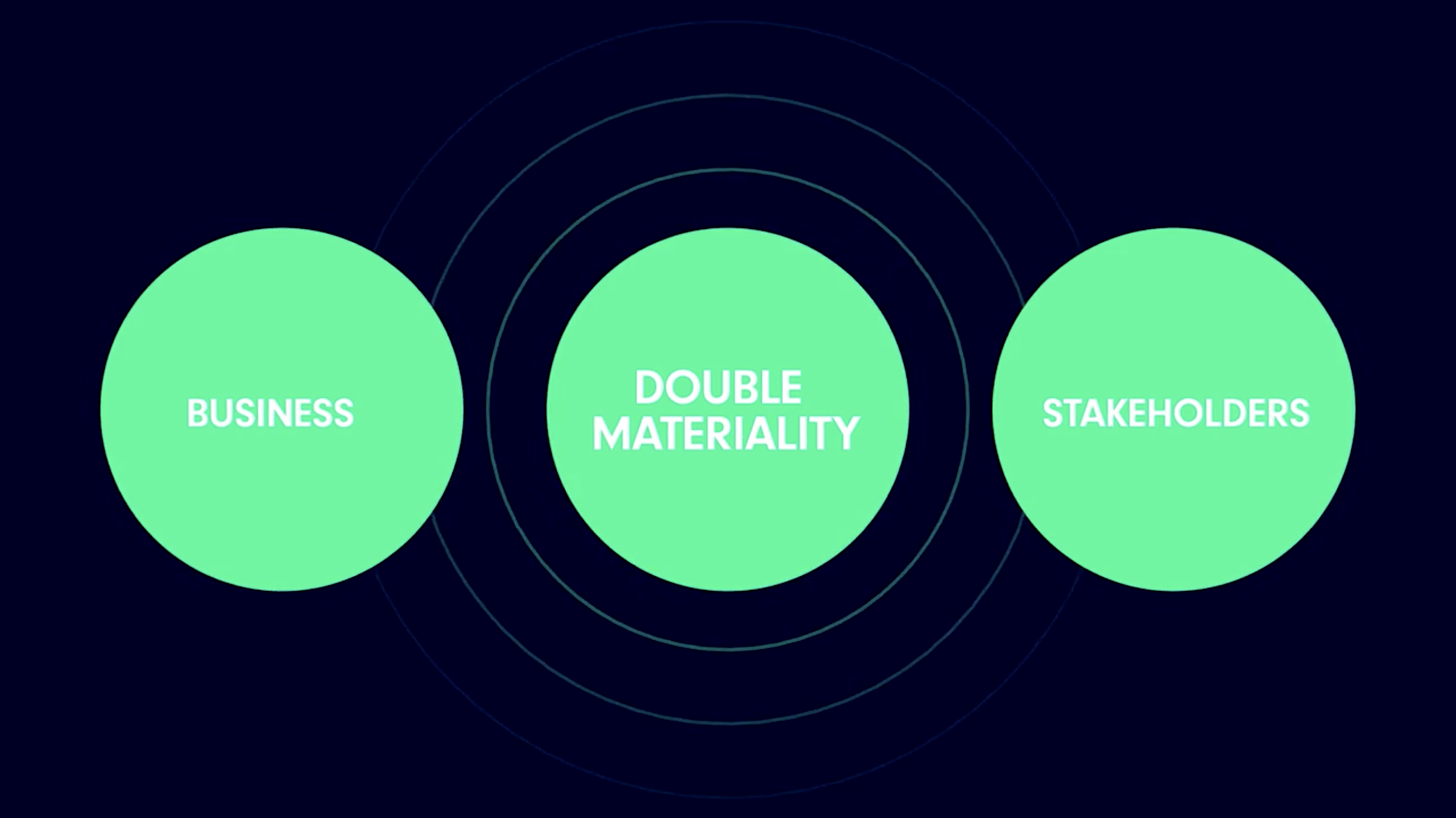Beyond Compliance: 5 ways double materiality empowers your sustainability teams

Double materiality assessments aren’t going anywhere, especially with new legislation such as ISSB and CSRD, that place materiality at the core.
While double materiality assessments can take up to six months to complete and involve extensive stakeholder interviews, the investment pays off. By fully engaging in the process, you can leverage every datapoint and opportunity to maximise benefits for your business.
Here are 5 key ways conducting a double materiality assessment will empower your sustainability teams.
1. Build a rock-solid foundation for your sustainability strategy
A good double materiality assessment should provide you with the foundation for a comprehensive sustainability strategy. Again, the more you engage in the process and truly understand the outputs, the easier it will be to build a sustainability strategy will be.
The assessment’s outputs will highlight key themes, impact areas, potential risks and opportunities that will drive your strategy forward. To achieve maximum benefit, share the outputs of the assessment with wider teams to create a holistic sustainability strategy.
2. Gain direct insights from key stakeholders
It can be a rare opportunity for sustainability teams to hear directly from key stakeholders, especially on their opinions of specific sustainability issues.
Think carefully about who to engage as part of the double materiality process and what insights you can gain from each group. Consider how you can use the information gathered from this step to drive your strategy and initiatives forward.
3. Future-proof your reporting through regulatory alignment
CSRD and ISSB have double materiality at their core. If your business is in scope for these, you’ll have to conduct an assessment to comply. It’s likely that even if you aren’t in scope now, the requirements of these regulations will become reporting best practice over time, so it’s best to familiarise yourself with them.
4. Accelerate impact through focused action
Sustainability teams spend significant time considering where their highest impacts lie and how to mitigate them. A double materiality assessment does this for you, meaning your teams can focus on the details and delivery of the strategy, rather than the identifying what’s important.
The stakeholder engagement phase of the double materiality process is important to gain buy-in, again saving you time and allowing you to focus on how to deliver against the agreed priorities.
5. We’ll do the hard work for you
The best part of all? We know conducting a double materiality assessment can take up a lot of time from sustainability teams. At Gather, our tailored 4 stage approach helps sustainability teams get the most from the assessment, so you can focus on the important things, like driving impact where it matters.
Get in touch
To find out more and discuss how Gather can help embrace your difference, contact Katy Fuller, Senior Sustainability Consultant, katy@gather.london
